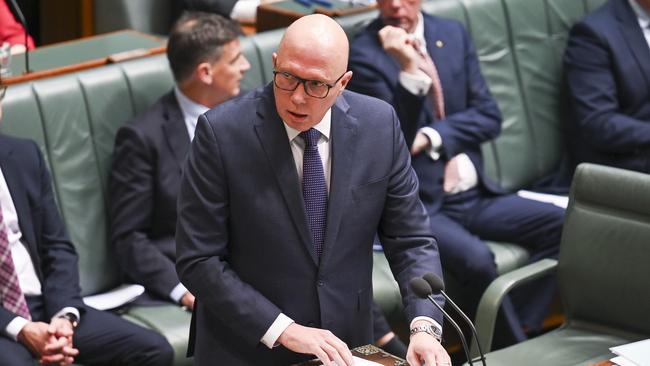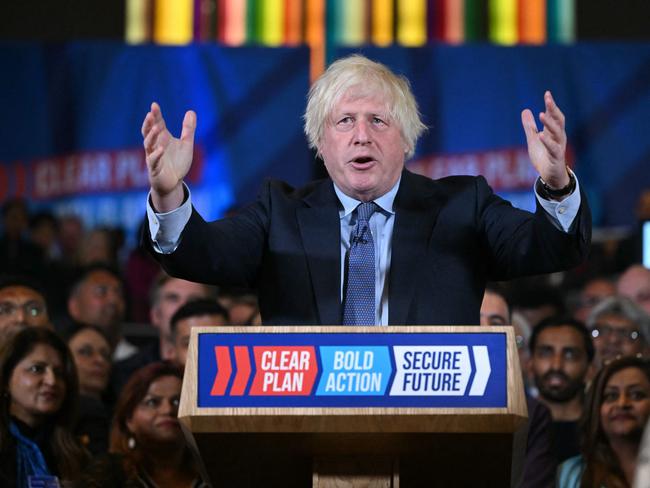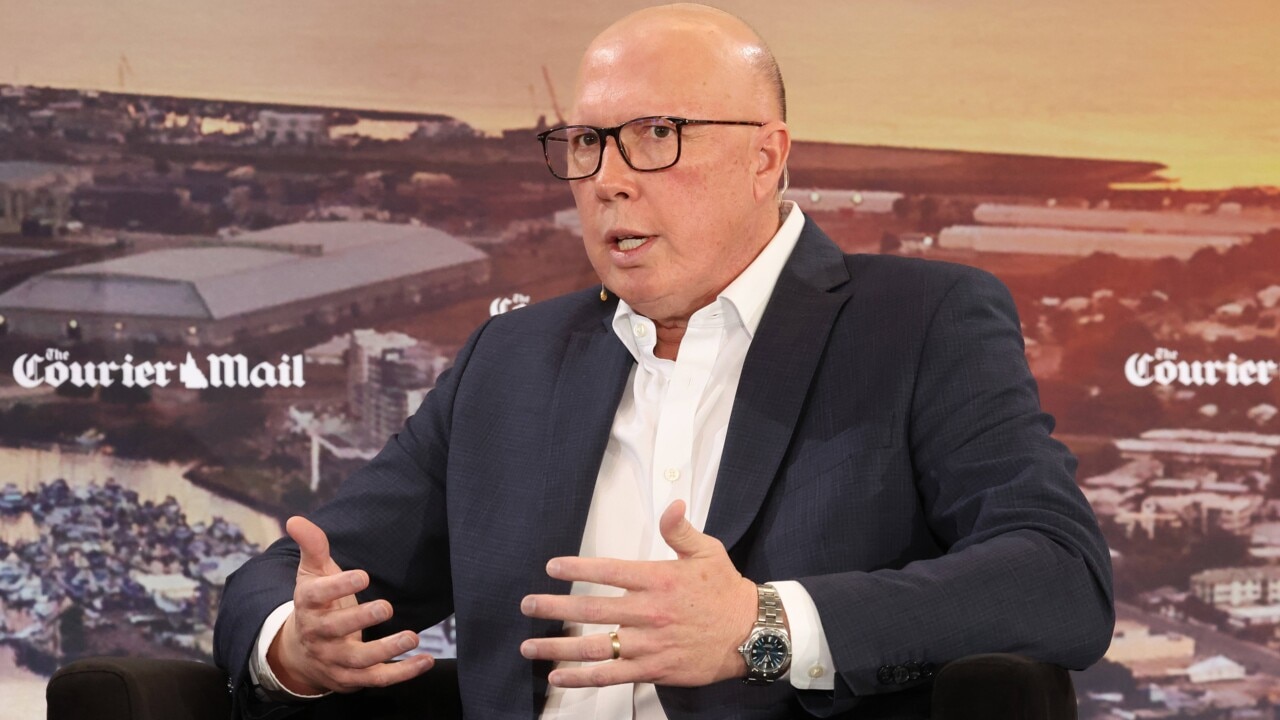
It’s a serious question the opposition will have to answer soon. It is a question that haunts centre-right parties around the world in an age when fortune favours extreme voices on both right and left of the political divide.
There are no easy answers.
The temptation to give in to the loud and fierce voices is large. That easy broad path is viable in countries that do not have compulsory voting, where the aim is to animate the base, not court the centre.
It’s the road taken by the Republican Party in the US as it vanishes into the ego of Donald Trump. This hostile takeover of the Grand Old Party by a single man was etched in the moment the former president stepped on stage to accept the party’s nomination last month. In political campaigns you look for the slogan the party wants the community to associate with the candidate. So what was up in lights? “Make America Great Again”? No. It was “Trump”, spelled out in the kind of gaudy globes that adorn the mirrors of Hollywood dressing-rooms.
In this coronation the Republican Party took the final step from political movement to personality cult. It may well prove to be a winning move for this election but all monarchies face the same long-run problem: who succeeds when the king is dead?
In Britain the Conservatives are a smoking ruin after 14 years in government ended in humiliation.
David Cameron’s optimistic entrance seems an eon ago and what lingers is Rishi Sunak’s apologetic curtain call for a show that lost the plot well before the end of the first act.
There were three other prime ministers between the rise and fall of the curtain. Theresa May never enjoyed the loyalty she deserved, had a tin ear for politics and gambled on an early election that was a spectacular own goal.
The best description of Boris Johnson’s tenure is undisciplined and erratic. The worst is that he was congenitally unable to tell the truth and failed to live by the standards he demanded of others during the dark era of Covid restrictions. Rank hypocrisy has a price and Johnson went from election hero to zero in three short years, leaving a party so badly damaged that no one could save it, just as none could describe what it was. The only contribution of Liz Truss is as a quiz question: who was the shortest serving prime minister in British history?

But the British Conservatives look like Shakespeare compared with the Keystone Cops of the NSW division of the Liberal Party, which failed the basic competence test of getting its paperwork in on time to nominate candidates in council elections. There is an old saying in politics: If you can’t run your own party you can’t run the state. This division has lowered that bar to a chook raffle gag.
Looking around the nation, the Liberal landscape is dire in every state bar the hybrid Liberal National show in Queensland and the minority government in Tasmania.
In Western Australia the Liberals suffered a near extinction-level event at the 2021 election. With three members in the lower house it is a party in name only.
In South Australia the party was ejected after a single term in government and the former opposition leader, David Speirs, stepped down on August 8 declaring he’d “had a gutful” of being undermined.
The leadership drums are beating again in Victoria, a division that resembles Labor in the wilderness years from 1955 to 1982.
Someone needs to round up all the state divisions and deliver the kind of speech that Gough Whitlam made to the ideologically pure but perennially woeful Victorian Labor branch at its conference in 1969.
“If any business enterprise found itself faced with such a record of continuous and consistent disasters, it would be plunged towards bankruptcy,” Whitlam said. “Its directors would be involved in serious reappraisal of their approach; its shareholders would be demanding examination of the board’s policy and personnel.
“We, by contrast, euphemise deep disasters as temporary setbacks … Worse, we construct a philosophy of failure, which finds in defeat a form of justification and a proof of the purity of our principles. Certainly, the impotent are pure.”
At a federal level the Liberals’ epic 2022 election disaster has left Peter Dutton with the task of trying to construct a win from so far back that success would reduce Scott Morrison’s 2019 miracle victory to a biblical footnote.
To Dutton’s credit, he has held his party together and put pressure on the government. This is a stark contrast to where Brendan Nelson found himself after the 2007 defeat. Nelson, then opposition leader, was fighting an ascendant Kevin Rudd and an ambitious Malcolm Turnbull. Nelson was the first of three leaders the Liberals burned through before the 2010 election.

So what does it mean to be Liberal in the 21st century and what kind of Australia does Dutton want to see? After laying that foundation, he needs to do the hard work of building policies that may begin to address people’s key concern, the spiralling cost of living.
Maybe it is time to dust off the liberal foundation stones and highlight the timeless ideas of individual freedom and personal choice. That people will be treated as adults by assuming they are better placed than governments to decide how to run their lives and spend their money. That stable families, in whatever their guise, are the building blocks of resilient communities.
That government should build a safety net for the vulnerable but it cannot solve all your problems. That budgets do need to be contained and that means making hard choices.
That everyone’s rights and dignity should be respected but robust free speech is central to a healthy democracy. And maybe it’s time to talk again about the responsibility of being a citizen, that if you work hard and play by the rules you will be rewarded.
That strong borders are essential if people are to have faith in the integrity of the migration program. But maybe we should debate how many people Australia can sensibly sustain and slow the rate of increase. It should also be open to any government to include social cohesion as a benchmark for the immigrants we want to encourage.
That national security, economic security and energy security are not negotiable.
That the primary purpose of the energy system is to deliver affordable, reliable power. That the portfolios of climate and energy should be split and a vibrant debate encouraged between the two.
That this is one nation, that all the people in it are equal and that all are represented by one flag.







What is the Liberal Party for?